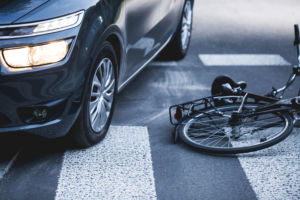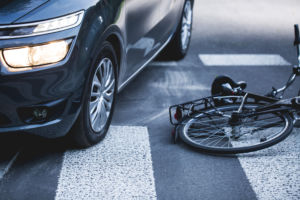
Florida Bicycle Laws Every Rider Should Know
Florida’s sunny climate and scenic routes make it a haven for cyclists. However, beneath the picturesque landscape lies a stark reality: the state leads the nation in bicycle-related fatalities. In fact, as of 2024, there were 18 people on average in a bicycle crash every day. When accidents occur, drivers often blame the cyclist, shifting responsibility and complicating legal claims.
Understanding Florida’s bicycle laws isn’t just about compliance—it’s about protecting yourself against wrongful accusations and ensuring you receive the justice you deserve. If you’ve been injured due to someone else’s negligence, you don’t have to face the aftermath alone. Contact our Florida bicycle accident lawyers at Fuentes & Berrio today to safeguard your rights and seek rightful compensation.
Bicycle Equipment Requirements
Florida law mandates specific equipment for bicycles to ensure rider safety. These requirements play a pivotal role in legal proceedings following an accident.
- Functional Brakes: Your bicycle must have brakes capable of stopping within 25 feet from a speed of 10 mph on dry, level, clean pavement.
- Lighting for Night Riding: When riding between sunset and sunrise, your bike must have the following:
- A white front lamp visible from at least 500 feet.
- A red rear reflector and a red lamp visible from 600 feet.
- Handlebars and Seats: Cyclists must use a fixed, regular seat for riding. It’s illegal to ride a bicycle without a seat or while standing on the pedals for prolonged periods.
- Hand Placement: Cyclists must have at least one hand on the handlebars at all times.
- Reflectors: Bicycles must have reflectors on the pedals and wheels. These increase visibility from various angles, and their presence can be a critical factor in legal cases involving side collisions.
Where You Can Ride: Road Rules and Bike Lanes
Understanding where you’re legally allowed to ride can impact the dynamics of an accident claim.
Sidewalks vs. Roadways
In Florida, cyclists can ride on sidewalks unless prohibited by local ordinances. When on a sidewalk, you have the same rights as pedestrians but must yield to them. If a vehicle strikes you while you’re lawfully on the sidewalk, the driver can be held liable for any injuries caused.
Bike Lanes
When a designated bike lane is present, cyclists should use it. However, there are exceptions, such as when:
- Overtaking another cyclist or pedestrian.
- Preparing for a left turn.
- Avoiding hazards.
Left Turns
Cyclists intending to make a left turn are entitled to full use of the lane from which the turn is made. They can either:
- Merge to the left lane and complete the turn like a motor vehicle, or
- Proceed to the far side of the intersection, stop, and then proceed in the new direction of travel.
- Alternatively, cyclists can dismount and walk through the intersection in the crosswalk as a pedestrian.
Traffic Laws for Cyclists
Obeying Traffic Signals and Signs
Cyclists must stop at all red lights and stop signs. If a motorist runs a red light and causes a collision, their violation of traffic laws is a strong basis for a personal injury claim.
Signaling Turns
Cyclists must signal turns during the last 100 feet before turning. If both hands are needed for control, the signal does not need to be continuous. They can signal:
- Left turn by extending the left arm horizontally.
- Right turn by either extending the left arm upward or the right arm horizontally.
- Stop or decrease speed by extending the left arm downward.
Prohibition of Headsets
Florida law prohibits the use of headsets or headphones while riding, as they can impede hearing traffic. Abiding by this law ensures you can hear oncoming vehicles, and if an accident occurs despite your compliance, it emphasizes the motorist’s fault.
Civil Penalties
Since bicycles are considered vehicles in Florida, violations like disregarding traffic signals, riding against traffic, or not using required lighting equipment at night are punishable with fines similar to those for motor vehicle violations.
Helmet and Passenger Laws
Helmet Requirements
Riders and passengers under 16 must wear a properly fitted helmet secured by a strap. While adults aren’t legally required to wear helmets, doing so can prevent severe injuries. In legal terms, wearing a helmet demonstrates a commitment to safety, which can be favorable in a personal injury claim.
Passenger Rules
Carrying more passengers than a bicycle is designed for is illegal. Children under four years old or weighing 40 pounds or less must be in a secure seat or carrier. Ensuring passengers are appropriately seated not only complies with the law but also safeguards against potential injuries, reinforcing the integrity of any legal claims arising from accidents.
Electric Bicycles and Florida’s Bicycle Laws
Under Florida law, electric bicycles are categorized into three classes based on their speed and motor function:
- Class 1: Pedal-assist only, with a maximum speed of 20 mph.
- Class 2: Throttle-powered but capped at a maximum speed of 20 mph.
- Class 3: Pedal-assist with a top speed of 28 mph but no throttle function.
In Florida, electric bicycles are generally treated the same as traditional bicycles. This means riders have the same rights and responsibilities as other cyclists, including the right to use bike lanes and the obligation to obey traffic signals and signs. However, Class 3 e-bikes are restricted from most bike paths and sidewalks unless explicitly allowed by local ordinances.
Riders under 16 are prohibited from operating Class 3 e-bikes, although they can ride as passengers. Additionally, helmets are required for all Class 3 riders, regardless of age.
Get Legal Support from Florida Bicycle Accident Attorneys
After a bicycle accident, life can change in an instant. Medical bills start piling up, work becomes an afterthought, and recovery feels like an uphill battle. The physical pain is one thing, but the emotional and financial burdens are just as overwhelming. You shouldn’t have to carry this weight alone—especially when the accident wasn’t your fault.
In Florida, bicycle laws are designed to protect cyclists, but insurance companies don’t always play fair. They’ll try to minimize your injuries, shift the blame onto you, or offer a settlement far below what you deserve. At Fuentes & Berrio, we know these tactics all too well. We won’t let them push you around. We dig deep, gathering the evidence, speaking to witnesses, and building a solid case to prove exactly who was at fault.
If you’ve been injured in a bicycle accident, the clock is ticking. Evidence can disappear, and memories can fade. Don’t wait to seek justice. Call (954) 752-1110 or fill out our online form. Let us handle the legal battle while you focus on healing and getting your life back on track.


